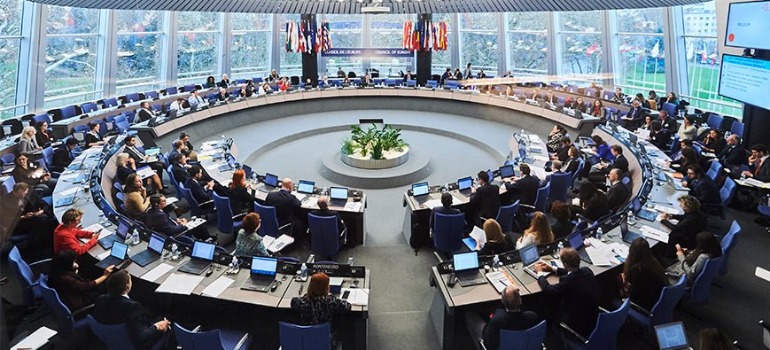Journalists and academics bear the brunt of the massive crackdown on freedom of expression in Turkey. Scores of them are currently subject to criminal investigations or behind bars. This website is dedicated to tracking the legal process against them.


The Committee notified Turkey of its intention to refer the issue to the Court at its meeting on 2 February 2022, asking Turkey to submit its view by 19 January at the latest
The Council of Europe’s Committee of Ministers has formally notified Turkey of its intention to refer the Kavala v. Turkey case to the European Court of Human Rights (ECtHR), asking whether Turkey has failed to fulfill its obligation to implement the Court’s judgment in the case in line with proceedings provided for under Article 46/4 the European Convention on Human Rights (ECHR), the Council of Europe announced in a press release issued on 3 December 2021.
Businessperson and civil society leader Osman Kavala has been in pre-trial detention since November 2017. In December 2019, the European Court ruled that Kavala’s detention took place in the absence of sufficient evidence that he had committed an offence. It found that his arrest and pre-trial detention pursued an ulterior purpose, namely to silence him and dissuade other human rights defenders, and that the time taken by the Turkish Constitutional Court to review his complaint was insufficiently “speedy.” The European Court concluded that the Turkish government was to take every measure to put an end to the applicant’s detention and to secure his immediate release. The Court’s judgment became final in May 2020, at which point the case passed to the Committee of Ministers to supervise the execution of the judgment.
In an Interim Resolution adopted on 2 December 2021, the Committee recalled its eight previous decisions, and one previous Interim Resolution, strongly urging the Turkish authorities to ensure the applicant’s immediate release and also to ensure the conclusion of the criminal proceedings against him on the basis of the European Court’s findings and without delay.
“By failing to ensure the applicant’s immediate release, the Committee considers that Turkey is refusing to abide by the Court’s final judgment in this case,” the CoE statement read. "The Committee therefore notified Turkey of its intention to refer the issue to the Court at its meeting on 2 February 2022, asking Turkey to submit its view by 19 January 2022 at the latest," it added.
Committee strongly urges Turkey to release Demirtaş
The Committee of Ministers also adopted an interim resolution concerning the case of Selahattin Demirtaş, the former co-chair of the Peoples’ Democratic Party (HDP) who has been imprisoned since November 2016.
Recalling its previous decisions, the Committee reiterated that the argument of the Turkish authorities that Demirtaş’s current pre-trial detention falls outside the scope of the Court’s judgment was examined and rejected by the Court in its indication under Article 46, as well as by the Committee in its previous examinations.
Expressing “the strong hope that the Constitutional Court concludes its examination of the applicant’s complaints in the shortest possible timeframe and in a manner compatible with the spirit and conclusions of the Court’s judgment,” the Committee once again strongly urged Turkey to ensure Demirtaş’s immediate release and decided to resume examination of the case at its meeting scheduled for March 2022 at the latest.
Under Article 46 of the European Convention on Human Rights, Council of Europe member states are obliged to implement judgments from the European Court of Human Rights. Article 46/4 of the Convention gives the Committee of Ministers, which is responsible for supervising the execution of the Court’s judgments, the possibility of referring to the Court the question of whether a state has failed to fulfil its obligation to implement a judgment.
